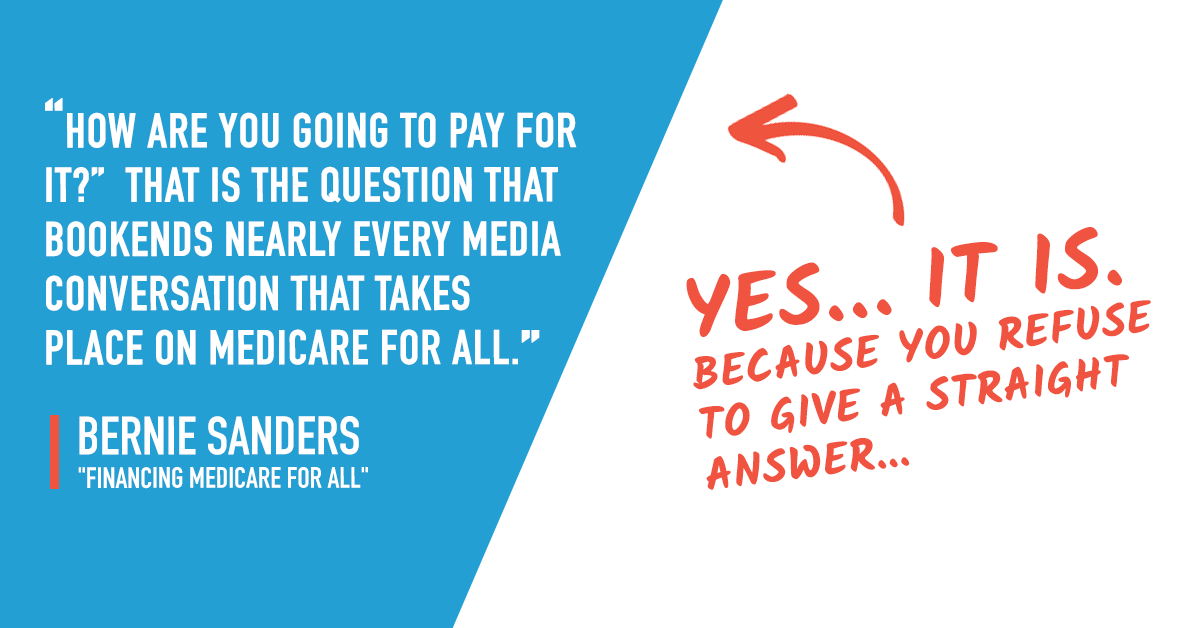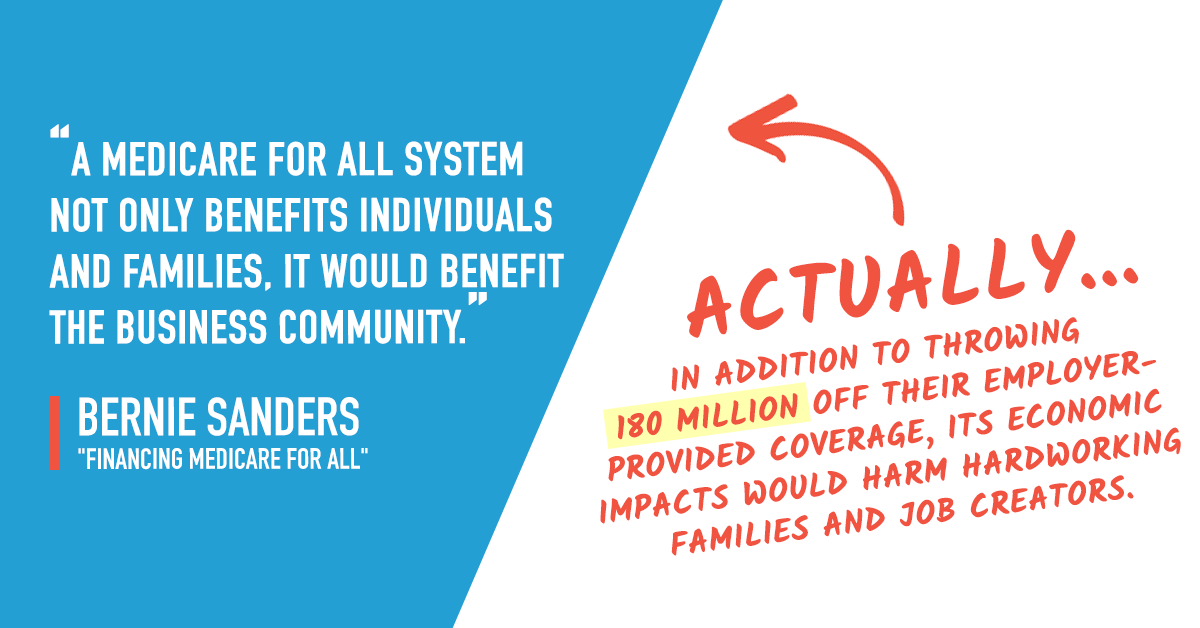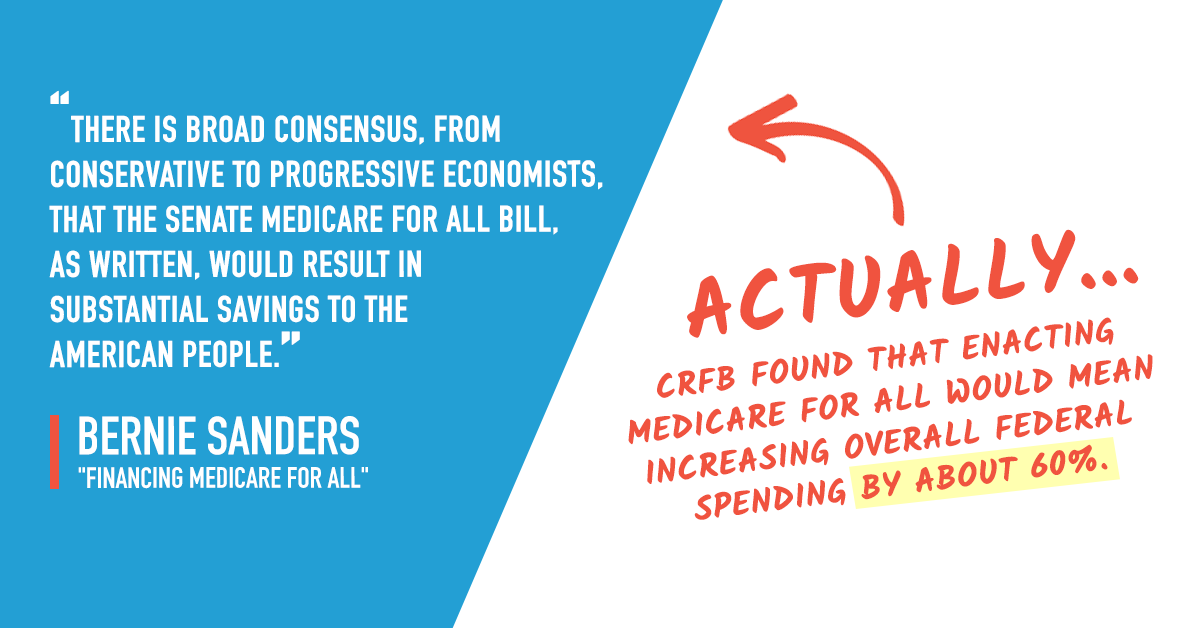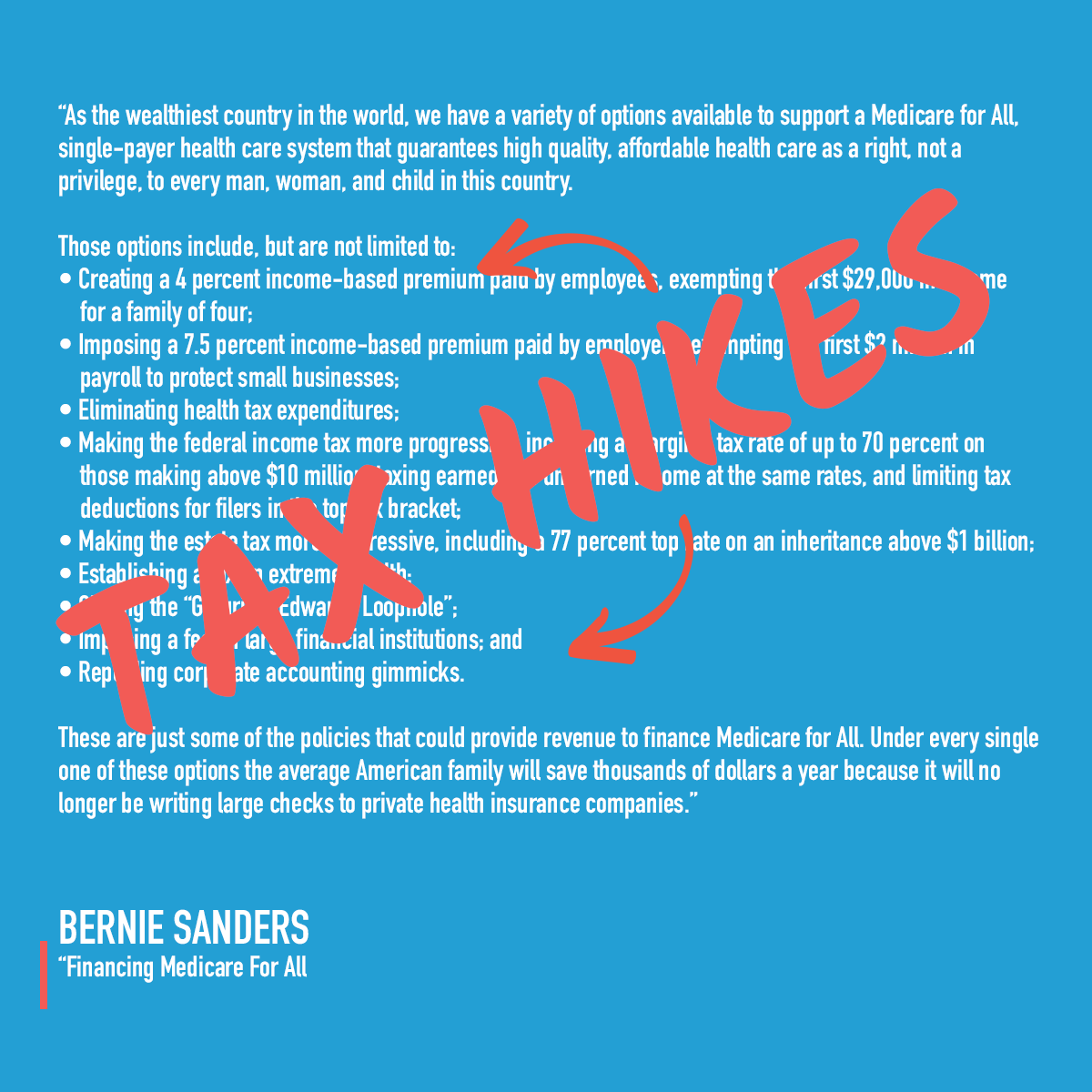Reality Check: Sanders’s Medicare For All Plan Would Costs Americans Trillions
As Senator Bernie Sanders (I-Vt.) launched a retread of his costly, disruptive “Medicare for all” legislation last week, he pushed out a document he hoped would distract the press and public from the growing chorus of well-founded concerns about its massive costs that would be passed on to middle class Americans through higher taxes. But the Sanders document raised more questions than answers … So we’re debunking the rhetoric with a reality check.
Sanders Says:

The Facts:
- “The big question Sanders doesn’t answer: How do you pay for it?” – (Sarah Kliff, Vox, 4/10/2019)
- The only way Bernie’s math adds up that Medicare for All would save money is through crippling cuts to hospitals and doctors (Washington Post, Editorial Board, 3/23/2019)
Sanders Says:

The Facts:
As a report issued last fall by pro-Medicare for all professors at the University of Massachusetts-Amherst admits, Medicare for all would “produce significant job losses” potentially impacting millions of Americans, while delivering “a significant negative shock to the U.S. economy.”
Sanders Says:

The Facts:
CRFB found enacting MFA would mean increasing federal spending by about 60 percent (excluding interest), and financing a $30 trillion program would require the equivalent of tripling payroll taxes or more than doubling all other taxes. (CRFB, 2/27/19)
Meanwhile, a growing chorus of leading Democrats has been sounding alarm bells on the high costs of Medicare for all. As The Washington Post notes, some Democrats are worried by such proposals, which “require middle class tax hikes that will prove hurtful for economic growth and the party’s political fortunes.”
- House Speaker Nancy Pelosi recently exclaimed to Rolling Stone: “And by the way, how’s it gonna be paid for?” And The Post reports that Pelosi raised serious concerns over whether Medicare for all “would be too expensive and fail to provide the same coverage as the Affordable Care Act. Instead, Pelosi (D-Calif.) suggested Thursday that she would rather build on the 2010 law and is yet to be convinced the Medicare-for-all proposal pushed by many liberals would achieve its purported goals.”
- Democratic Congressional Campaign Committee (DCCC) Chairwoman Rep. Cheri Bustos – the official responsible for protecting the Democratic House majority in 2020 – said to The Hill that “the $33 trillion price tag for Medicare for all is a little scary,” and later doubled down on those comments in an interview with CNN.
- The Washington Examiner reports that “Rep. Frank Pallone, D-N.J., who chairs the Energy and Commerce Committee, also has drawn attention to the cost,” while HuffPost noted recently that “it’s notable that [hearings] are not scheduled for any of the committees with jurisdiction over federal health care programs, and Pelosi herself has expressed skepticism about the feasibility of single-payer.”
- And President Barack Obama last week “warned a group of freshman House Democrats … about the costs associated with some liberal ideas popular in their ranks, encouraging members to look at price tags” in what was widely seen as “a cautionary note about Medicare-for-all,” The Washington Post reports.
Sanders Says:
The Facts:
“There’s no possible way to finance even single-payer without big middle class tax increases,” Marc Goldwein, CRFB’s senior vice president, told The Washington Post. With the free market and public programs working together, 90 percent of Americans are now covered, we should use the tools available within our existing system to control costs and expand access for millions more Americans. For example, we can extend access to millions by expanding Medicaid in the states that haven’t yet expanded the program. And, by expanding available federal subsidies, we can empower Americans of all income levels to choose market-based coverage that fits their needs. Also, by using proven tools like reinsurance we can stabilize premiums and help control health care costs for families.
It’s time for leaders in Washington to listen to every day Americans who cannot afford Medicare for all and do not support it. A national poll conducted earlier this year by the Kaiser Family Foundation found that six in 10 Americans oppose Medicare for All once they learn that it forces families to pay more in taxes.
